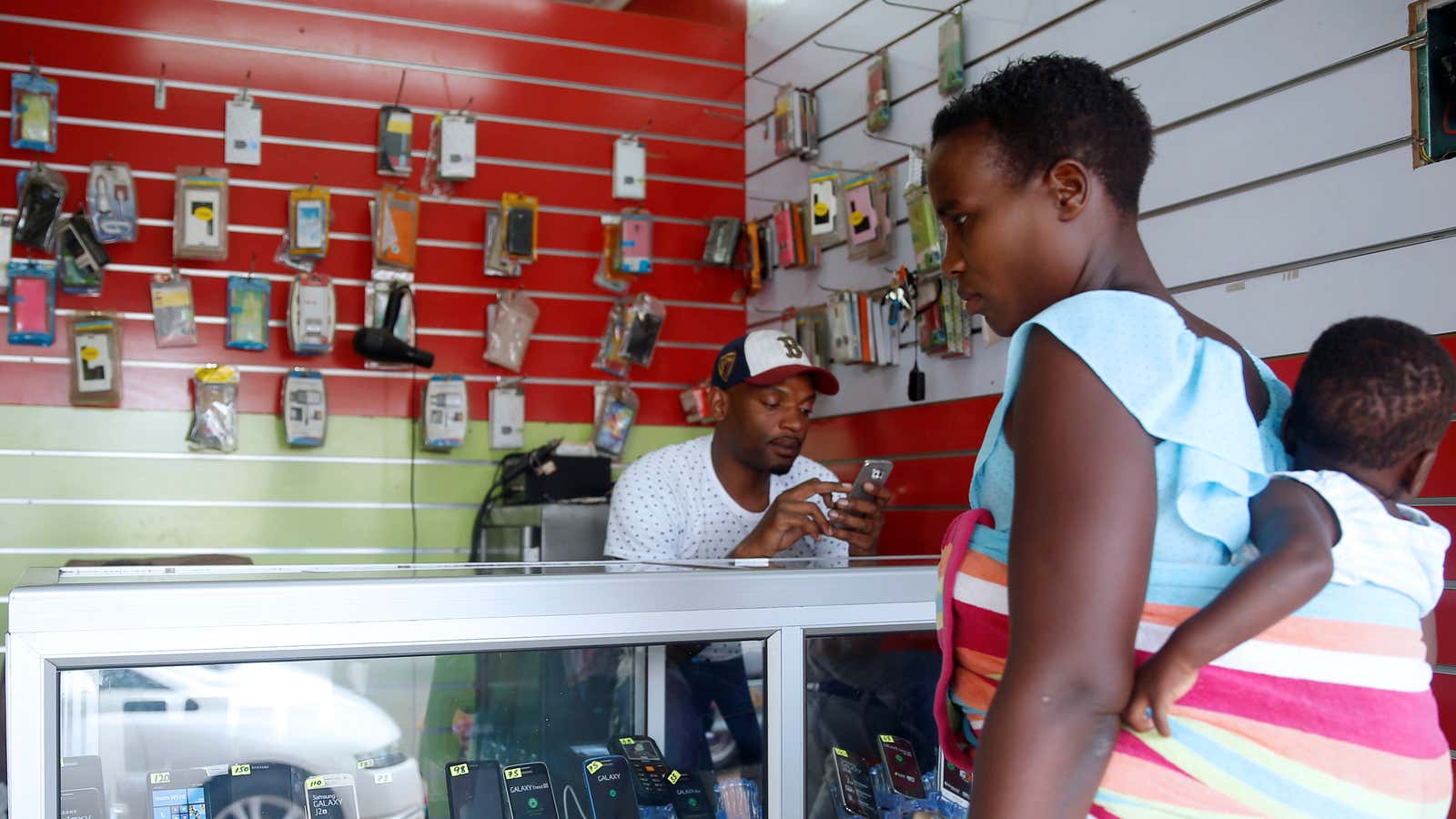Despite experiencing substantial growth in internet users in the last decade, Zimbabwe, a country of 14.7 million, still suffers from underutilized mobile internet capacity and low smartphone penetration, according to the latest annual report from the country’s largest telecommunications provider, Econet Wireless.
The report offers some fresh insight into the problems holding back the robust adoption of the internet in Africa, from power outages, to overzealous government regulation, to the fact that cheap social media bundles still account for a significant percentage of internet connectivity.
The number of mobile phone users in sub-Saharan Africa is estimated to reach half a billion this year, up from a subscriber base of 477 million in 2019, according to GSMA, an umbrella organization representing mobile operators globally. But that still accounts for just 45% of the region’s population—and less than 60% of those phone users have access to mobile internet.
Econet Wireless believes that Zimbabwe’s low mobile broadband take up is not just because of poor infrastructure deployment alone, but also a result of the government demands. In 2014, Zimbabwe introduced a 25% import duty tax on mobile handsets, which placed a high premium on phones sold by distributors inside the country.
This has had several consequences, but a few are of particular interest: Econet says that it now has excess data capacity on its network, and the infrastructure to reach 90% of Zimbabweans. But the high cost of phones has meant this capacity is way underutilized, with internet penetration in the country at only 60%.
Smartphones have become cheaper across the board in sub-Saharan Africa broadly, contributing to an average growth rate in smartphone connections of around 28% each year since 2015. But poverty and unequal opportunities remain major barriers. The average entry-level, internet-enabled handset costs more than 120% of the monthly earnings of the poorest 20% in the region, according to GSMA.
Econet also reports that least a fifth of the devices on its network are smart feature phones (simpler versions of smartphones) “with low data handling capacity.” And WhatsApp and Facebook account for nearly half of all mobile internet connections. Again, this is a challenge that is not unique to Zimbabwe. Many internet users across Africa are only on these types of social media and instant messaging applications—much to the frustration of governments wanting to control the flow of information or regulate social media-run businesses.
In addition, challenges with electricity are also contributing to cost-pressures, as persistent power cuts have forced operators to rely on alternative power sources such as diesel generators, hybrid batteries, or solar energy—investments which are ultimately passed on to subscribers through increases in mobile data packages.
With a better import duty regime for smartphones and sufficient power electricity back-up in countries like Zimbabwe, Africa could easily achieve or surpass the 475 million internet subscribers projected by GSMA by 2025, accounting for 39% of the population.
“We are working closely with the government to review the duty regime for mobile devices to enhance the rapid adoption of digital services across the economy,” reads the Econet report. “We are optimistic that the government, which also acknowledges the benefits of a digitized economy, will ensure that Zimbabweans are not left behind.”
